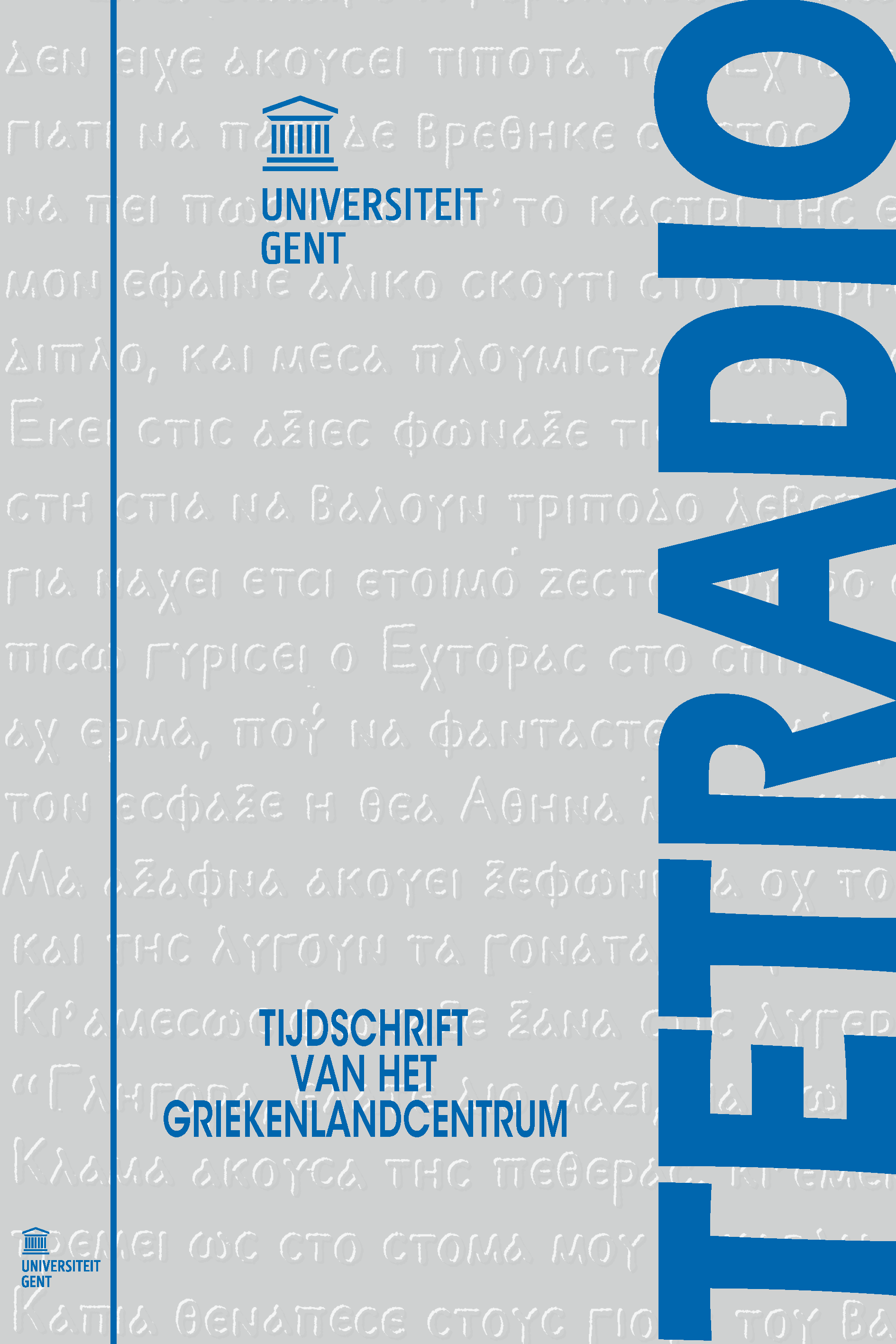Parrhèsia', 'asebeia' en censuur: Het vrije spreken en het beknotten van de vrije meningsuiting in het klassieke Athene en de Late Oudheid
- Danny Praet
Abstract
Ancient Greece is often seen as the cradle of democracy, of free thought and of free speech. This article presents a number of historical cases of intellectual repression in Greece and Rome, including examples even of book-burning. It discusses the political and philosophical concept of parrhèsia and analyses the importance of religious restrictions through well known charges of asebeia (Anaxagoras, Protagoras and Socrates). In the second section of the article Plato’s philosophical arguments in favor of preventive and repressive censorship are put forward, to end with a short discussion of the Stoic attitude towards censorship.
How to Cite:
Praet, D., (2009) “Parrhèsia', 'asebeia' en censuur: Het vrije spreken en het beknotten van de vrije meningsuiting in het klassieke Athene en de Late Oudheid”, Tetradio 18(1): 3, 61–87. doi: https://doi.org/10.21825/tetradio.91790
Downloads:
Download PDF
View PDF
